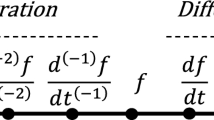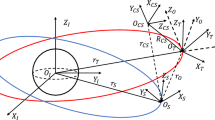Abstract
This research addresses the output tracking of networked high-order fully actuated (NHOFA) systems under random deception attacks in the sensor to networked controller (SNC) and networked controller to actuator (NCA) communication channels, where a Bernoulli process represents the launching success rate of random deception attacks. A successful attack involves the output and control signals being tampered with by the injection of false data. Herein, a predictive sliding-mode control scheme is proposed to achieve the security tracking. In this scheme, a sliding-mode variable is introduced to defend the random deception attacks by enhancing the robustness of closed-loop systems. An incremental HOFA (IHOFA) prediction model is developed using a Diophantine equation as an alternative to the traditional reduced-order prediction model. Through this IHOFA prediction model, the multistep ahead predictions of the sliding-mode variable are constructed to optimize the tracking performance and defense of random deception attacks. By utilizing the Lyapunov function and linear matrix inequality (LMI) approach, a sufficient and necessary condition is proposed to ensure stability and high tracking performance of closed-loop NHOFA systems. Herein, an experiment on the tracking control of an air-bearing spacecraft (ABS) simulator is performed to demonstrate the effectiveness and practicability of the predictive sliding-mode control scheme.
Similar content being viewed by others
References
Qiu L, Dai L, Ahsan U, et al. Model predictive control for networked multiple linear motors system under DoS attack and time delay. IEEE Trans Ind Inf, 2023, 19: 790–799
Cuenca A, Antunes D J, Castillo A, et al. Periodic event-triggered sampling and dual-rate control for a wireless networked control system with applications to UAVs. IEEE Trans Ind Electron, 2019, 66: 3157–3166
Bijami E, Farsangi M M, Lee K Y. Distributed control of networked wide-area systems: a power system application. IEEE Trans Smart Grid, 2020, 11: 3334–3345
Yu Y, Liu G P, Xiao H, et al. Design of networked secure and real-time control based on blockchain techniques. IEEE Trans Ind Electron, 2022, 69: 4096–4106
Yu Y, Liu G P, Zhou X, et al. Blockchain protocol-based predictive secure control for networked systems. IEEE Trans Ind Electron, 2023, 70: 783–792
Yu Y, Liu G P, Hu W. Learning-based secure control for multichannel networked systems under smart attacks. IEEE Trans Ind Electron, 2023, 70: 7183–7193
Li L, Yang H, Xia Y, et al. Attack detection and distributed filtering for state-saturated systems under deception attack. IEEE Trans Control Netw Syst, 2021, 8: 1918–1929
Yoo S J. Neural-network-based adaptive resilient dynamic surface control against unknown deception attacks of uncertain nonlinear time-delay cyberphysical systems. IEEE Trans Neural Netw Learn Syst, 2020, 31: 4341–4353
Wu B, Chang X H. Security control for nonlinear systems under quantization and Round-Robin protocol subject to deception attacks. ISA Trans, 2022, 130: 25–34
Zhang Z, Deng R, Cheng P, et al. Strategic protection against FDI attacks with moving target defense in power grids. IEEE Trans Control Netw Syst, 2022, 9: 245–256
Ning Z, Wang T, Zhang K. Dynamic event-triggered security control and fault detection for nonlinear systems with quantization and deception attack. Inf Sci, 2022, 594: 43–59
Chattopadhyay A, Mitra U. Security against false data-injection attack in cyber-physical systems. IEEE Trans Control Netw Syst, 2020, 7: 1015–1027
Li L, Zhang Y, Geng Q. Mean-square bounded consensus of nonlinear multi-agent systems under deception attack. ISA Trans, 2022, 129: 91–101
Wu Z, Xiong J, Xie M. Dynamic event-triggered L∞ control for networked control systems under deception attacks: a switching method. Inf Sci, 2021, 561: 168–180
Yang Y, Huang J, Su X, et al. Adaptive control of cyber-physical systems under deception and injection attacks. J Franklin Institute, 2021, 358: 6174–6194
Gao R, Huang J. Adaptive control for high-order nonlinear systems subject to deception attacks with assignable stabilization performance. In: Proceedings of the 17th IEEE Conference on Industrial Electronics and Applications, Chengdu, 2022. 1194–1199
Yuan H, Guo Y, Xia Y. Event-based distributed filtering against deception attacks for sensor networks with quantization effect. ISA Trans, 2022, 126: 338–351
Zhang Q, Yin X, Hu S. A two-event-generator scheme for event-triggered control of uncertain NCSs under deception attacks. Inf Sci, 2022, 584: 148–169
Yang Y, Huang J, Su X, et al. Adaptive control of second-order nonlinear systems with injection and deception attacks. IEEE Trans Syst Man Cybern Syst, 2022, 52: 574–581
Wang J, Ding B, Hu J. Security control for LPV system with deception attacks via model predictive control: a dynamic output feedback approach. IEEE Trans Automat Contr, 2021, 66: 760–767
Tang X, Wu M, Li M, et al. On designing the event-triggered multistep model predictive control for nonlinear system over networks with packet dropouts and cyber attacks. IEEE Trans Cybern, 2022, 52: 11200–11212
Wang J, Song Y, Wei G. Security-based resilient robust model predictive control for polytopic uncertain systems subject to deception attacks and RR protocol. IEEE Trans Syst Man Cybern Syst, 2022, 52: 4772–4783
Wu Z, Wang Z, Wang Y, et al. Dynamic event-triggered networked predictive control for discrete-time NCSs under deception attacks. Intl J Robust Nonlinear, 2023, 33: 2682–2702
Liu Y, Chen Y, Li M. Event-based model predictive damping control for power systems with cyber-attacks. ISA Trans, 2023, 136: 687–700
Li B, Zhou X, Ning Z, et al. Dynamic event-triggered security control for networked control systems with cyber-attacks: a model predictive control approach. Inf Sci, 2022, 612: 384–398
Shi T, Guan Y, Zheng Y. Model predictive control of networked control systems with disturbances and deception attacks under communication constraints. Intl J Robust Nonlinear, 2022. doi: https://doi.org/10.1002/rnc.6363
Duan G R. High-order fully actuated system approaches: part I. Models and basic procedure. Int J Syst Sci, 2021, 52: 422–435
Zhang D W, Liu G P, Cao L. Proportional integral predictive control of high-order fully actuated networked multiagent systems with communication delays. IEEE Trans Syst Man Cybern Syst, 2023, 53: 801–812
Duan G Q, Liu G P. Attitude and orbit optimal control of combined spacecraft via a fully-actuated system approach. J Syst Sci Complex, 2022, 35: 623–640
Meng R, Hua C, Li K, et al. Adaptive event-triggered control for uncertain high-order fully actuated system. IEEE Trans Circuits Syst II, 2022, 69: 4438–4442
Zhang D W, Liu G P, Cao L. Predictive control of discrete-time high-order fully actuated systems with application to air-bearing spacecraft simulator. J Franklin Institute, 2023, 360: 5910–5927
Zhang D W, Liu G P. Predictive control for networked high-order fully actuated systems subject to communication delays and external disturbances. ISA Trans, 2023. doi: https://doi.org/10.1016/j.isatra.2023.03.041
Shao X, Ye D. Fuzzy adaptive event-triggered secure control for stochastic nonlinear high-order MASs subject to DoS attacks and actuator faults. IEEE Trans Fuzzy Syst, 2021, 29: 3812–3821
Duan G R. High-order fully actuated system approaches: Part X. Basics of discrete-time systems. Int J Syst Sci, 2022, 53: 810–832
Yu Y, Liu G P, Hu W. Security tracking control for discrete-time stochastic systems subject to cyber attacks. ISA Trans, 2022, 127: 133–145
Cao Z, Wang Z, Niu Y, et al. Sliding mode control for sampled-data systems subject to deception attacks: handling randomly perturbed sampling periods. IEEE Trans Cybern, 2022. doi: https://doi.org/10.1109/TCYB.2022.3202486
Qi W, Lv C, Park J H, et al. SMC for semi-Markov jump cyber-physical systems subject to randomly occurring deception attacks. IEEE Trans Circuits Syst II, 2022, 69: 159–163
Xing M, Wu Y, Zhuang G, et al. Dynamic event-based sliding mode security control for singular semi-Markov jump LPV systems against deception attacks. ISA Trans, 2023, 133: 116–133
Sun B, Sun X. An algorithm of predictive sliding mode control based on power-function (in Chinese). Inform Control, 2011, 40: 39–43
Papakonstantinou C, Moraitis G, Lappas V, et al. Design of a low-cost air bearing testbed for nano CMG maneuvers. Aerospace, 2022, 9: 95
Rybus T, Wojtunik M, Basmadji F L. Optimal collision-free path planning of a free-floating space robot using spline-based trajectories. Acta Astronaut, 2022, 190: 395–408
Eun Y, Park S Y, Lee T, et al. Experimental validation of positive adaptive-control approach for spacecraft proximity maneuvers. J Aerosp Eng, 2021, 34: 04021096
Zhang D W, Liu G P, Cao L. Coordinated control of high-order fully actuated multiagent systems and its application: a predictive control strategy. IEEE ASME Trans Mechatron, 2022, 27: 4362–4372
Zhang D W, Liu G P, Cao L. Constrained cooperative control for high-order fully actuated multiagent systems with application to air-bearing spacecraft simulators. IEEE ASME Trans Mechatron, 2023, 28: 1570–1581
Acknowledgements
This work was supported in part by National Natural Science Foundation of China (Grant Nos. 62173255, 62188101) and Shenzhen Key Laboratory of Control Theory and Intelligent Systems (Grant No. ZDSYS20220330161800001).
Author information
Authors and Affiliations
Corresponding author
Rights and permissions
About this article
Cite this article
Zhang, DW., Liu, GP. Predictive sliding-mode control of networked high-order fully actuated systems under random deception attacks. Sci. China Inf. Sci. 66, 190204 (2023). https://doi.org/10.1007/s11432-022-3817-5
Received:
Revised:
Accepted:
Published:
DOI: https://doi.org/10.1007/s11432-022-3817-5




